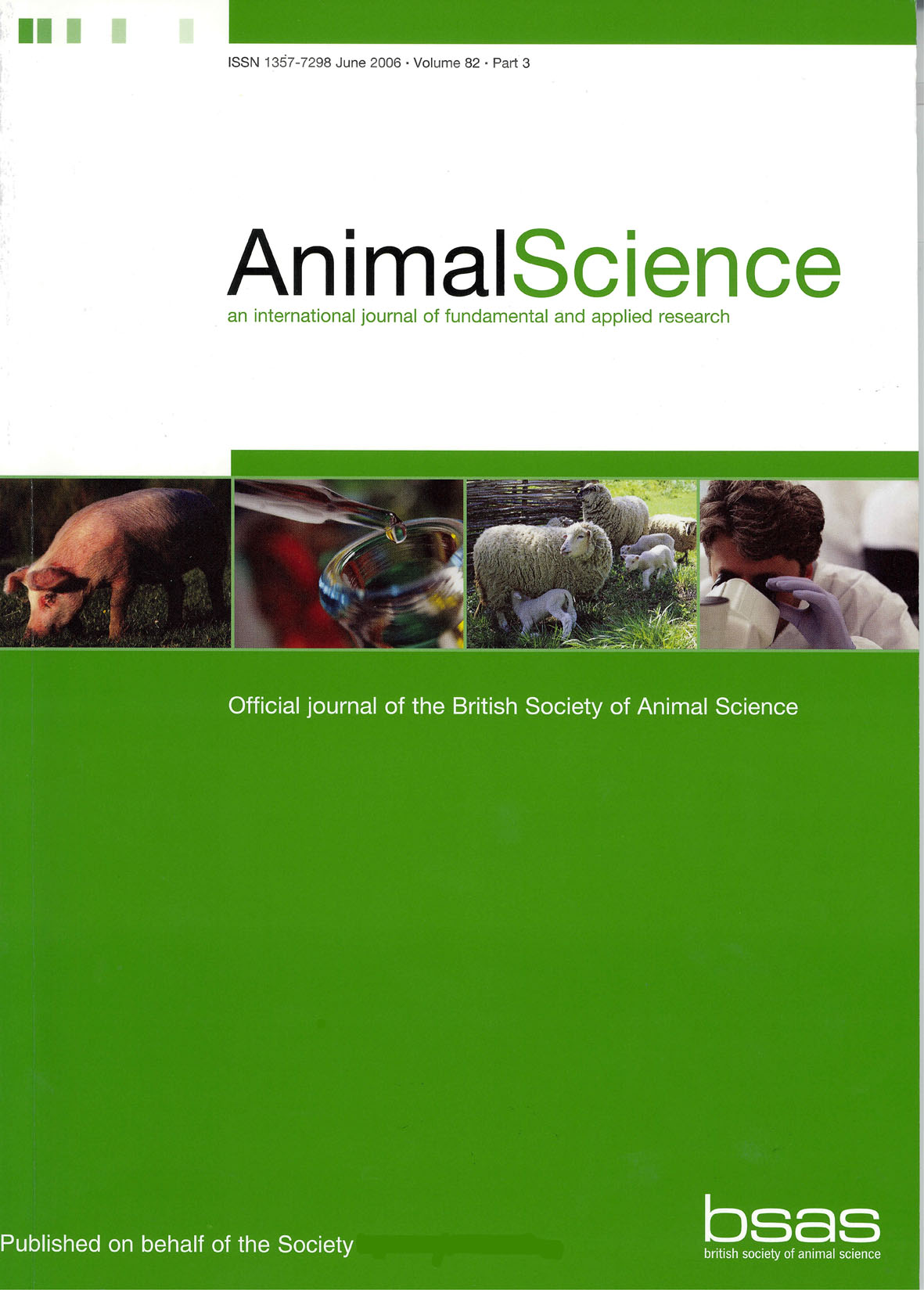Crossref Citations
This article has been cited by the following publications. This list is generated based on data provided by
Crossref.
Haresign, W.
1992.
Responses of ewes to melatonin implants: importance of the interval between treatment and ram introduction on the synchrony of mating, and effects on ovulation rate.
Animal Science,
Vol. 54,
Issue. 1,
p.
41.
Brunet, A.Gómez
Sebastian, A.López
Picazo, R.A.
Cabellos, B.
and
Goddard, S.
1995.
Reproductive response and LH secretion in ewes treated with melatonin implants and induced to ovulate with the ram effect.
Animal Reproduction Science,
Vol. 39,
Issue. 1,
p.
23.
Mendonça, Mary T.
Tousignant, Alan J.
and
Crews, David
1996.
Pinealectomy, melatonin, and courtship behavior in male red-sided garter snakes (Tahmnophis sirtalis parietalis).
The Journal of Experimental Zoology,
Vol. 274,
Issue. 1,
p.
63.
Rondon, Z.
Forcada, F.
Zarazaga, L.
Abecia, J.A.
and
Lozano, J.M.
1996.
Oestrous activity, ovulation rate and plasma melatonin concentrations in Rasa Aragonesa ewes maintained at two different and constant body condition score levels and implanted or reimplanted with melatonin.
Animal Reproduction Science,
Vol. 41,
Issue. 3-4,
p.
225.
Sweeney, T.
and
O'Callaghan, D.
1996.
Breeding season and ovulation rate in ewes treated with long days in spring followed by a melatonin implant and exposure to a ram.
Animal Science,
Vol. 62,
Issue. 3,
p.
507.
Mitchell, L. M.
King, M. E.
Aitken, R. P.
and
Wallace, J. M.
1997.
Influence of lambing date on subsequent ovarian cyclicity and ovulation rate in ewes.
Animal Science,
Vol. 65,
Issue. 1,
p.
75.
Laliotis, V.
Vosniakou, A.
Lymberopoulos, A.
Doney, J. M.
and
Kouimtzis, S.
1997.
The effect of melatonin treatment in combination with progestagen pessaries on reproductive performance of ewes during the anoestrous period.
Animal Science,
Vol. 65,
Issue. 1,
p.
71.
Laliotis, V
Vosniakou, A
Zafrakas, A
Lymberopoulos, A
and
Alifakiotis, T
1998.
The effect of melatonin on lambing and litter size in milking ewes after advancing the breeding season with progestagen and PMSG followed by artificial insemination.
Small Ruminant Research,
Vol. 31,
Issue. 1,
p.
79.
Kusakari, Naohito
and
Ohara, Mutsuo
1999.
Effect of Accelerated Lambing System with Melatonin Feeding on Reproductive Performance for 2 Years in Suffolk Sheep Raised in Hokkaido..
Journal of Reproduction and Development,
Vol. 45,
Issue. 4,
p.
283.
O'Callaghan, D
1999.
A Practical Approach to the Management of Reproductive Seasonality in Sheep.
Reproduction in Domestic Animals,
Vol. 34,
Issue. 3-4,
p.
285.
Rosa, H.J.D
and
Bryant, M.J
2003.
Seasonality of reproduction in sheep.
Small Ruminant Research,
Vol. 48,
Issue. 3,
p.
155.
Gómez, J.D.
Balasch, S.
Gómez, L.D.
Martino, A.
and
Fernández, N.
2006.
A comparison between intravaginal progestagen and melatonin implant treatments on the reproductive efficiency of ewes.
Small Ruminant Research,
Vol. 66,
Issue. 1-3,
p.
156.
Abecia, J.A.
Palacín, I.
Forcada, F.
and
Valares, J.A.
2006.
The effect of melatonin treatment on the ovarian response of ewes to the ram effect.
Domestic Animal Endocrinology,
Vol. 31,
Issue. 1,
p.
52.
Abecia, J.A.
Valares, J.A.
Forcada, F.
Palacín, I.
Martín, S.
and
Martino, A.
2007.
The effect of melatonin on the reproductive performance of three sheep breeds in Spain.
Small Ruminant Research,
Vol. 69,
Issue. 1-3,
p.
10.
Arrebola, FA
Abecia, JA
Forcada, F
Garcia, A
Martí, RA
and
Mesa, O
2009.
Effects of annual rainfall and farm on lamb production after treatment with melatonin implants in Merino sheep: A 4-year study.
New Zealand Veterinary Journal,
Vol. 57,
Issue. 3,
p.
141.
Vázquez, MI
Forcada, F
Casao, A
Abecia, JA
Sosa, C
and
Palacín, I
2009.
Undernutrition and Exogenous Melatonin Can Affect theIn VitroDevelopmental Competence of Ovine Oocytes on a Seasonal Basis.
Reproduction in Domestic Animals,
Vázquez, M.I.
Forcada, F.
Casao, A.
Sosa, C.
Palacín, I.
and
Abecia, J.A.
2009.
Effects of melatonin and undernutrition on the viability of ovine embryos during anestrus and the breeding season.
Animal Reproduction Science,
Vol. 112,
Issue. 1-2,
p.
83.
Uslu, Baris Atalay
Tasal, Ibrahim
Gulyuz, Fetih
Sendag, Sait
Ucar, Omer
Goericke-Pesch, Sandra
and
Wehrend, Axel
2012.
Effects of oestrus synchronisation using melatonin and norgestomet implants followed by eCG injection upon reproductive traits of fat-tailed Morkaraman ewes during suckling, anoestrus season.
Small Ruminant Research,
Vol. 108,
Issue. 1-3,
p.
102.
Palacios, C.
and
Abecia, J. A.
2015.
Meteorological variables affect fertility rate after intrauterine artificial insemination in sheep in a seasonal-dependent manner: a 7-year study.
International Journal of Biometeorology,
Vol. 59,
Issue. 5,
p.
585.
Uzabacı, Ender
Ustuner, Hakan
and
Boe-Hansen, Gry
2024.
Effects of melatonin implants on reproductive performance in sheep: a systematic review and meta-analysis.
Animal Production Science,
Vol. 64,
Issue. 8,

